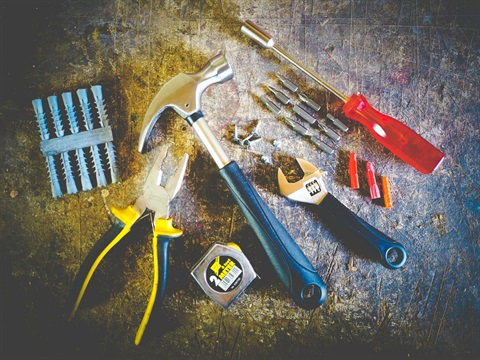
Surf Coast Shire is moving closer to a circular economy with Council making a $20,000 once-off grant available to enable the set up and running of a Surf Coast Shire Library of Things (LoT), by an existing or new community or business group.
A LoT enables a local sharing economy, where people can loan products and learn new skills, rather than the need for individual ownership of products, especially for products not used regularly. Every LoT offers a different collection of items for loan, with some examples including household tools, gardening equipment and home sustainability items.
A LoT sharing model has many benefits including:
- Reduced consumption and environmental impacts associated with the production of products.
- Reduced waste going to landfill through unwanted or fixed broken items being diverted from landfill to become part of the LoT collection.
- Lowering household costs through loaning items rather than purchasing items.
- Strengthening communities by encouraging trust and uniting the members of the community to work together towards a common goal, leading to a more connected and resilient community.
Supporting local sharing economy initiatives is a key action in the newly adopted Circular Economy Action Plan and also aligns with Council’s Climate Emergency Response Plan 2021-2031 as increased waste avoidance and resource recovery helps to reduce greenhouse gas emissions.
“This is an exciting development for Surf Coast Shire and a great example of Council supporting the development of circular economy initiatives in the community,” said Cr Libby Stapleton
“It would be great to see a Surf Coast Shire Library of Things so residents can borrow items and avoid buying new things they may only want to use a few times,” she said.
Research conducted by Council officers found that:
- There are many models of LoTs around the world – from online models through to dedicated shop fronts.
- LoTs are traditionally community led, with some support from councils. They may also involve a collaborative approach and may involve professional groups too.
- The biggest challenges for LoTs are funding, staffing, and finding a suitable venue with adequate storage.
- The recommended first step in setting up a LoT is an initial community survey to evaluate public interest, identify items of interest, and to identify volunteers (noting their skills and availability).
As well as the once-off grant Council can support this initiative by conducting the initial survey, promotions and providing guidance to help the group connect to other grants and community initiative support where available.
Further promotions about this once-off grant will be circulated towards the end of the year with the grant application process likely to run in January/February 2025.








